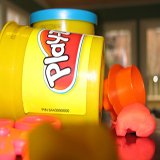Stages of Social Development - Skills & What to Do
Many parents have no idea of what to do in the different stages of social development and stages of emotional development in children.
Many kids have very little idea how to interact appropriately with their peers in the same stages of social development. They simply lack the social skills needed to perform the most basic cooperative tasks.
Lack of social skills is probably the biggest factor contributing to lack of academic success where working in teams are required later in their lives. For this and many other reasons, child social development is very important.
Here you'll find different stages of social development and stages of emotional development skills and what to do to promote social and emotional development in babies and toddlers.
The different stages of social development in toddlers are broken down according to age for easy reference.
Stages of Social Development: 15 - 18 months
| Skill | What to Do |
| She starts to assert herself and demonstrates her determination by trying to stamp her authority over you. Tantrums are common at this age. | Help her manage her assertiveness and inevitable frustrations more effectively by responding patiently and calmly to her demands. When she is furious with you because you have said "no", stick to the limits you have set. She needs you to be consistent. |
| She wants to do more for herself in the key areas of her life, especially with feeding and dressing. | Encourage your child to hold the spoon in her hand so that she can try to feed herself. This is challenging for her but she'll manage to get most of the food into her mouth without spilling too much on to the table. Feeding herself is an important step towards achieving greater independence. |
| Your child is fascinated by other children, watching them closely when in their company. | Provide social play opportunities for her, either at a parent-and-toddler group or at a friend's house. Don't expect her to interact with her peers, however, because he doesn't know how to be sociable yet. |
Stages of Social Development: 19 - 21 months
| Skill | What to Do |
| She shows signs that she is nearly ready to begin toilet training, although her bladder control is unlikely to be mature enough actually to begin the process. | Look for signs of readiness for potty training, such as your child telling you that her nappy is wet, or if she asks you to change her nappy because she feels uncomfortable in it, or if you find that the nappy is still dry after several hours. Buy a potty so that your child is familiar with it by the time she is ready to start using it. |
| Your toddler's increasing assertiveness makes her challenge you, and her frustration with your refusal to do what she wants may show through. | Your toddler may put up a valiant effort to make you change your mind about something. If she does have a tantrum, resist the temptation to give in, or she'll have an even bigger tantrum the next time around. |
| Your child makes more of an effort to engage you either by talking to you or by involving you in her play activities. She appreciates you company more now. | Respond positively when your toddler tries to make conversation with you. Even though you might not fully understand what she says, make good eye contact and look interested in her comments. Make a particular point of playing with her every day. |
Stages of Social Development: 22 - 24 months
| Skill | What to Do |
| Two-year olds are not very good at sharing. You child might think it's fine to take a toy from another child without asking, yet she cries when the child does the same thing to her. | Be patient with her when she becomes upset playing with other children. Encourage her to share toys, reassure her that she'll get the toy back in a few minutes, comfort her if she is upset about sharing and then return her to the play situation. The more contact she has with other children, the quicker she'll learn sharing skills. |
| She generally does more for herself around the house. Her skill at feeding herself is increasing and she has started toilet training now, although she may not yet be fully dry during the day. | Promote your child's increasing independence in her daily care. At mealtimes, encourage her to use a spoon to feed herself and to drink from an open cup that is at least half full. And let her help "wash" her self at bath time. This results in a surge in her self-confidence and willingness to try new activities. |
| Temporary separations from you may be difficult for her, and she might cry and cling to you the moment she realizes you intend to leave her with someone else. | Be prepared to leave your child briefly in the care of a reliable person, such as a trustworthy babysitter, relative or friend. If your child does appear upset at the moment of separation from you, reassure her, give her a big cuddle and then leave. Remember, she'll soon stop crying once you've gone. |
Stages of Social Development: 25 - 30 months
| Skill | What to Do |
| Self-help skills have improved even further. She enjoys the new-found freedom that independence brings, though she continues to rely on you a great deal of the time. | Actively involve your child in dressing and undressing. For instance, teach her how to pull down her trousers and pants to go to the toilet, and how to pull off her socks and pullover when getting ready for bed. Expect her to be tidier in her eating habits. |
| Having progressed through the stage of solitary play (where she plays on her own), she now plays alongside others and even attempts to play with them at times. | Be ready to support your child when she plays with her peers. Disagreements can quickly develop simply because children of this age don't understand the normal social rules. Sort out arguments as quickly as possible., then encourage her to continue playing. |
| Her willingness to explore on her own and to try more things on her own also results in more experience of frustration and failure. She may be despondent at times. | Choose activities and toys of an appropriate level for her capabilities. When a challenge proves beyond her, point out to your child that she need not get upset. Suggest that she tries again, using another strategy to solve the problem she face3s. Keep her calm, and give her lots of praise when she does try a second time. |
Stages of Social Development: 31 - 36 months
| Skill | What to Do |
| Your child is likely to be reliably clean and dry during the day (though there will be occasional "accidents"), and you may want to consider starting night training as well. | Remember that control of bowel and bladder at night is achieved after daytime control. If you find that your child's nappy is dry in the morning when she wakes up, suggest to her that she could try leaving the nappy off at nights. Never get upset with your child over the inevitable wet beds. |
| Despite her lack of mature social skills, you child may start to form a special friendship with one child in particular, probably the one she sees most regularly. | If your child does show a preference for one child, do your best to encourage that friendship by providing lots of chances for them to play together. However, make sure that she also plays with other children, too, as friendships change very easily at this age. |
| She is becoming more aware of other people's feelings, especially when they are unhappy, and she makes a positive effort to help and comfort someone is distress. | Watch her behavior towards another child in tears. She approaches him with a sad, concerned expression on her face and asks what is making him cry. Your child may offer him her own cuddly toy because that makes her feel better when she's upset. |
Find It!
Can't remember where you read something specific? Just type in your search term in the box below and your specific topic will be returned to you instantly.









